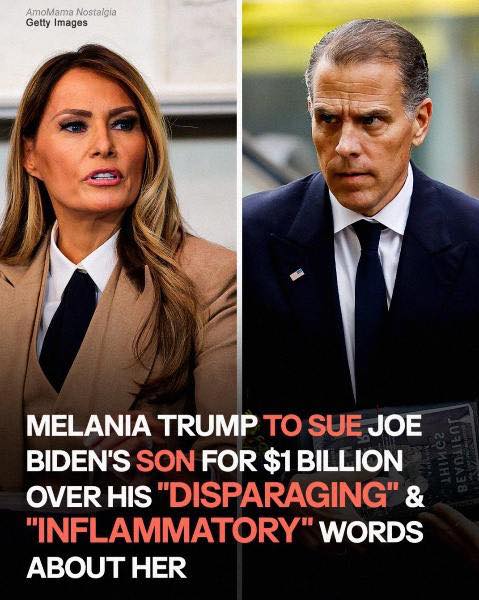In today’s fast-paced digital world, where information—true or false—can spread instantly, protecting one’s reputation has become more important than ever. Former First Lady Melania Trump now finds herself at the center of a high-profile defamation dispute, threatening a $1 billion lawsuit over a claim she and her legal team say is completely false: that she was introduced to Donald Trump by the late Jeffrey Epstein.
Melania’s attorneys have labeled the claim “false and defamatory,” arguing that it has caused serious harm to her public image and personal reputation. They have formally demanded retractions and public apologies from anyone who has repeated the rumor, and some media outlets have already complied by correcting or removing similar statements.
The rumor recently resurfaced after Hunter Biden—son of President Joe Biden—mentioned it during a public interview. Despite legal pressure, Hunter has refused to retract or apologize, saying he stands by what he said. His refusal has intensified the conflict and may soon lead to a full-scale legal battle.
Melania Trump has been clear that this is not about financial compensation, but about defending her name and the true story of how she met her husband. According to both Melania and Donald Trump, they met in 1998 at a New York Fashion Week party hosted by Italian businessman Paolo Zampolli. Donald, impressed by her, gave her several of his phone numbers that night. Their relationship began soon after, and they married in 2005.
Melania insists that this personal story should not be tainted by unfounded conspiracy theories. Her legal action serves as a broader warning about the dangers of misinformation in the digital age. For public figures, lawsuits are often the only effective way to fight back against falsehoods that go viral.
In the end, Melania’s case is not just about one rumor—it’s about the principle that a good name is worth protecting, no matter how famous you are.
